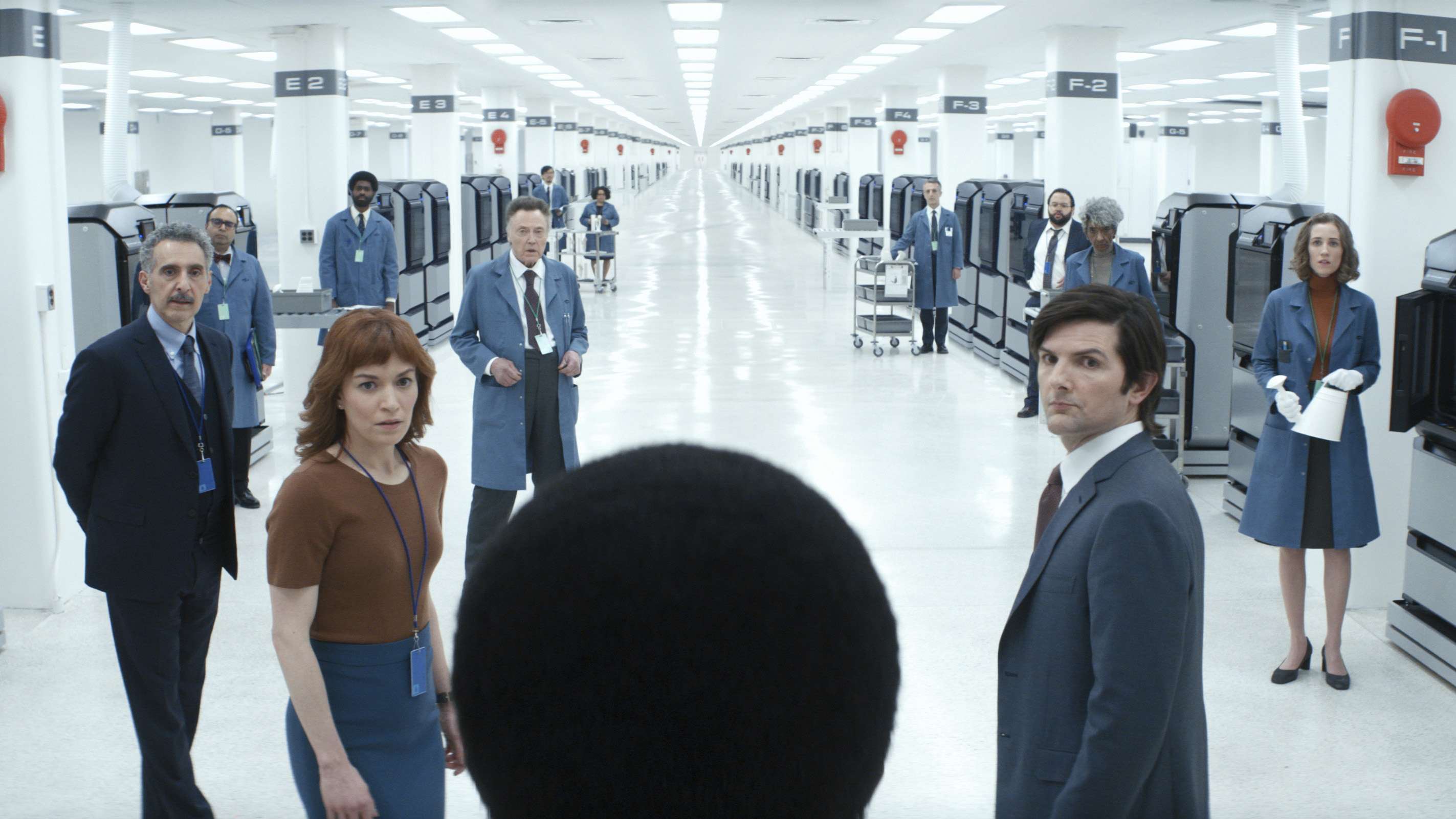
"A liminal space is the time between the 'what was' and the 'next.' It is a place of transition, waiting, and not knowing. Liminal space is where all transformation takes place, if we learn to wait and let it form us."

Jazz is liminal -- it's literally the music we use to fill out liminal places -- lobbies, elevators, hold music for telephones -- and it's always given me this super-liminal feeling. For me, I think it's in part the nostalgia of old swedish 2000s children programming that incorporated jazz like there was no tomorrow https://www.youtube.com/watch?v=Ke--dZdZWRM but there's also something inherently liminal to it that I wish I knew the music theory to describe. Maybe it has to do with how jazz incorporates dissonance. I think that can have to do with the sort of longing feeling of a lot of jazz, like a lost, unretrievable memory, slightly off. In the way tension is in every chord, it kind of saves itself from the "story" of other music, where it traditionally starts on a chord, moves away to then find it's way "home" to the original chord. Jazz doesn't really find it's way home, there's no home, every cord is a little dissonant, and jazz usually ends with a sense of drifting off rather than landing on a chord. So there's this constant presence in jazz -- the past seems far away, unreachable, and the goal diffuse and uncertain -- it's the constant present of liminality. Jazz, for me, carries with it it's own presence. There's a precense, a space, a room, I've sometimes described it to myself, that you can step into with jazz, and I've never had that sense with other forms of music -- they rush you on to get you to the destination -- jazz urges you to stay in the lobby, hang by the door, dwell here just a moment more, step inside if you want.
I sometimes get the feeling that humans don't intuitively like liminality.
But I think that in a lot of our attempts to dispurse of liminalty, we end up creating new opportunities for it. Events that function to mark of what could otherwise be a liminal period often have this effects, like birthdays and New Years. They attempt to mark of time, to say, yesterday you were 14, today you're 15, yesterday was 2015, today is 2016. But this avoidance of liminality just focuses the liminality on one day, on one moment, on one big transition that carry all those feeling of longing, of change, of uncertainty. And that's why they can feel really weird, if you dwell on them. It's the feeling of: "Seems to me now / That the dreams we had before / Are all dead, nothing more / Than confetti on the floor / It's the end of a decade / In another ten years time / Who can say what we'll find / What lies waiting down the line / In the end of '89"




Around 2018, there was a common narrative that Jordan Peterson was a pipe-line for young men towards fascist ideology, and at the time, I thought that this was a bit like saying weed is a gateway drug to crack cocaine -- sure, most people probably dip their toes into lighter stuff before they go off the rails, but I don't know if that is the fault of the comparatively more moderate stuff. Also, I saw a lot of stuff he said that seemed useful and pulling away from ideology -- the anti-incel stuff; his commentary on fascism, I think, is better than a lot of just regular psychologists; I've seen right-wing men use Peterson's psychological understanding of genocide to move away from more extreme positions, recognizing outright genocidal incitement when they see it, making them less extreme and not more. But after reading Peterson's Maps of Meaning, I can't help but feel disillusioned to this, and think that the people making those claims where much more informed about his ideas than I thought. Maps of Meaning propose a sort of social darwinistic view of meaning -- that the ideas that survive are ideas that are real. Also, I think it verges into danger in it's simplicity. It portrays a conflict between meaning and fact, modernity and tradition, that Revolt against the modern world So, basically, the most influencial thinker of 2016 was a jungian alchemist with a christian streak clinging to a pre-post-modern sense of meaning. In hindsight, that checks out. The Hero's Journey
I think that beneath all this order and chaos, there's one big liminality on top of which we project this project of the known world and the unknown world. And I think that's fine, but I think we should be honest about how that's what the human brain is doing instead of falling into the narrative and starting to think that the world is literally order and chaos when it's not. For a long time, I felt terrified of falling into chaos, like life was a tight rope of order and meaning above a great abyss that you just risked falling into everyday. But I think that is living in the story, and that the fear of the story can hold you back from discovery more than it provides a framework for discovery. The solace here for me, is liminality. Behind order and chaos, there's liminality, and liminality isn't scary, it just is. It can be comforting, sometimes; it's a resting place, a place for spontaneous growth. “God’s kingdom is like seed thrown on a field by a man who then goes to bed and forgets about it. The seed sprouts and grows—he has no idea how it happens. The earth does it all without his help: first a green stem of grass, then a bud, then the ripened grain." That's liminality. It's not order, it's not chaos, it's growth, it's movement, it's stillness in movement. Sometimes it can be lonely, longing, sometimes it can be unsettling or eerie, or strange, but it just is. It can feel like this forgotten way of viewing the world that you loose when you're not in it. Maybe that's why nostalgia is so connected to liminality, because I feel like childhood was a more liminal time. It doesn't have clear boxes or structure, but it's also not madness. It's the journey between not existing and then not existing again, but being a little changed in between.
Believe it or not, everything is liminal Expand on that. No